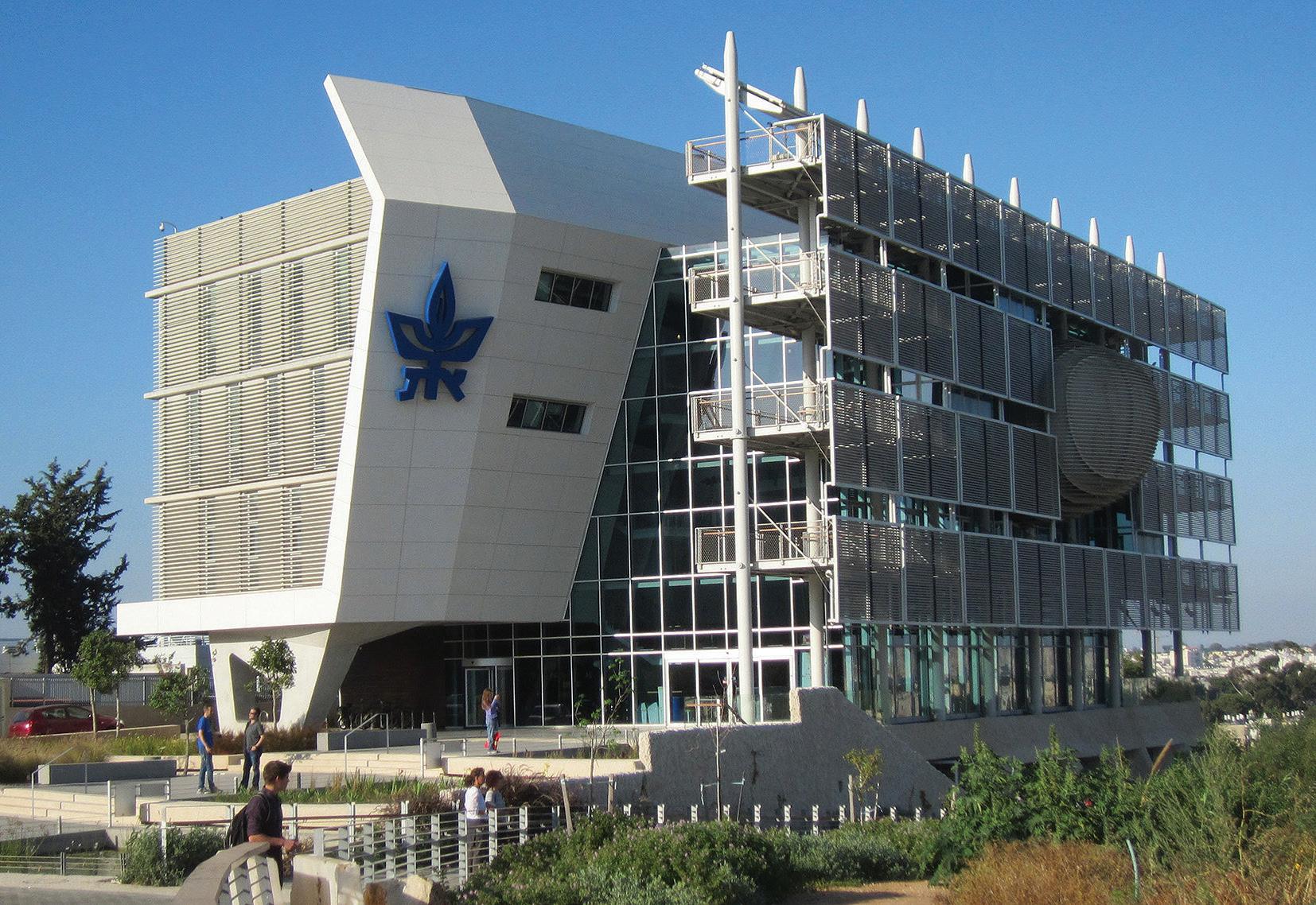
17 minute read
NEW “FRIENDS” CEO
AROUND THE COMMUNITY
AFTAU
In July, David Solomon assumed the newly created role of CEO of the national arm of the Australian Friends of Tel Aviv University. The Jewish Report wanted to find out what his responsibilities are.
Congratulations on assuming your new role. What does it entail and how did Federal AFTAU come about?
Clive Donner, the national Chair, who is also President of the Western Australian division of AFTAU, created the Federal body two years ago, under the auspices of Tel Aviv University.
I am the inaugural CEO of Federal AFTAU and Clive hired me to liaise with Tel Aviv University (TAU) and co-ordinate activities in Australia.
AFTAU has active committees in Victoria and New South Wales, as well as in Western Australia and we have plans to grow further.
My key responsibilities are to: • Develop a strategy for a range of fundraising programs and other development opportunities with local pre-existing donors, potential donors and community members. Funds raised for the university are used to assist its educational and research goals and long-term development plans. • Raise the profile of TAU and Australian Friends of Tel Aviv University (AFTAU) in a broader community context, including academia, corporations and governments. This is done by publicising the university’s achievements and advancements in research, technology, humanities and innovation. • Promotion of Australian university and corporate relationships with TAU in the areas of academic and research partnerships. • Encourage student enrolment in courses at TAU, as well as exchanges between Australian universities and TAU. This includes creating scholarships to support learning and research, cultivate student and faculty exchanges, and recruiting Australian students to participate in the TAU International Program.
We are part of a global network of Friends’ associations.
What are your top three priorities, in order of importance?
Narrowing it down is nearly impossible, but if I have to choose just three, they would be: 1. Understanding the full history of the university, of the Australian Friends and the many people that have built it in this country for more than four decades and to develop a strategy to engage the next generations of Australian supporters. 2. Meet and speak to as many existing and potential supporters, universities, corporations, other Israel-focused organisations and governments, with a view to advancing links to TAU. 3. To get to Israel as soon as travel conditions permit, to meet the academic and research staff at the university and learn much more about their groundbreaking work.
What is your background?
I have held various roles in business management, strategic and operational consulting, business coaching, mentoring, leadership and executive search. This has been with listed multinational corporations and a number of successful start-ups. Most recently, I spent three years working as national philanthropy executive for Australian Red Cross. I also spent 13 years on the Board of the Australia Israel Chamber of Commerce during its rapid expansion period, as well as numerous other community organisations over the years.
Obviously, you will be spruiking the merits of Tel Aviv University, so exactly what are they? If you can, talk to me about initiatives and innovation that may be of global significance. • TAU is very much a multi-disciplinary university and one of its key strengths is the way it brings together all the streams of academia and research to collaborate in “Centres” that are tasked with solving real-world problems.
These include neuroscience, biomed & bioinformatics, quantum science & technology, nanotechnology, environmental studies, cyber and renewable energy. A recent example of this collaboration is The Centre for Combatting Pandemics, which had seed funding from Frank Lowy. • Students come from around the world to study at TAU and many of the courses are taught in English. The resulting melting pot of cultures spreads tentacles when students return to their home countries. TAU alumni are everywhere. • Two thirds of the students at TAU study at post-graduate level i.e. masters, doctorate and post-doctorate levels. • TAU is considered a world leader in several fields, such as entrepreneurship, cybertechnology and nanotechnology. • Other areas of global impact include water, medical technology, archaeology, classics, computer science, film & TV, education, engineering, geriatrics, linguistics, mathematics and theoretical economics. • There are some exceptional examples of life-changing developments coming out of the university. For example, TAU scientists printed the first ever 3D heart using a patient’s own cells. • The next big thing for TAU (and Israel) will be big data and artificial intelligence.
How significant a university is Tel Aviv on the world stage?
For a relatively young university (TAU was established in 1953), the institution punches well above its weight globally.
A new study by Stanford University identified the top 2% of researchers in various disciplines worldwide. From a list of 160,000 researchers in 149 countries, 22 scientific disciplines and 176 subdisciplines, 333 Tel Aviv University faculty members are ranked among the top 2% of researchers in their respective fields.
The TAU cybersecurity course is ranked number one in the world.
A TAU course on Islam has been ranked as one of the 50 best online courses of all time.
Is there any formal tie in with Australian or Australian universities? If so, can you elaborate?
TAU has bilateral agreements with approximately 500 institutions and universities in 40 countries worldwide and Australia is no exception. Most revolve around student exchange programs at undergraduate, masters and doctoral levels. There is also collaborative research being undertaken. A key objective in Australia is to expand these and create more.
So, how can the Australian Jewish community help when it comes to Tel Aviv University? What do you desire from the community here?
The best place to start is to learn more about the university – join the mailing list, log onto to a webinar, give me or anyone on the various state committees a call, or browse the TAU website.
If you are going to Israel, make TAU one of your places to visit. There is so much to see, including the Steinhardt Museum of Natural History.
I strongly believe that once you get to know a bit more, you will want to keep learning more about how TAU impacts Israel and, indeed, the rest of the world. If that then moves you to become involved philanthropically, we would welcome your help with the process of enabling higher education and Tikkun Olam.
Tel Aviv Uni Friendship Circle
The Porter School of Environmental Studies Building at Tel Aviv University
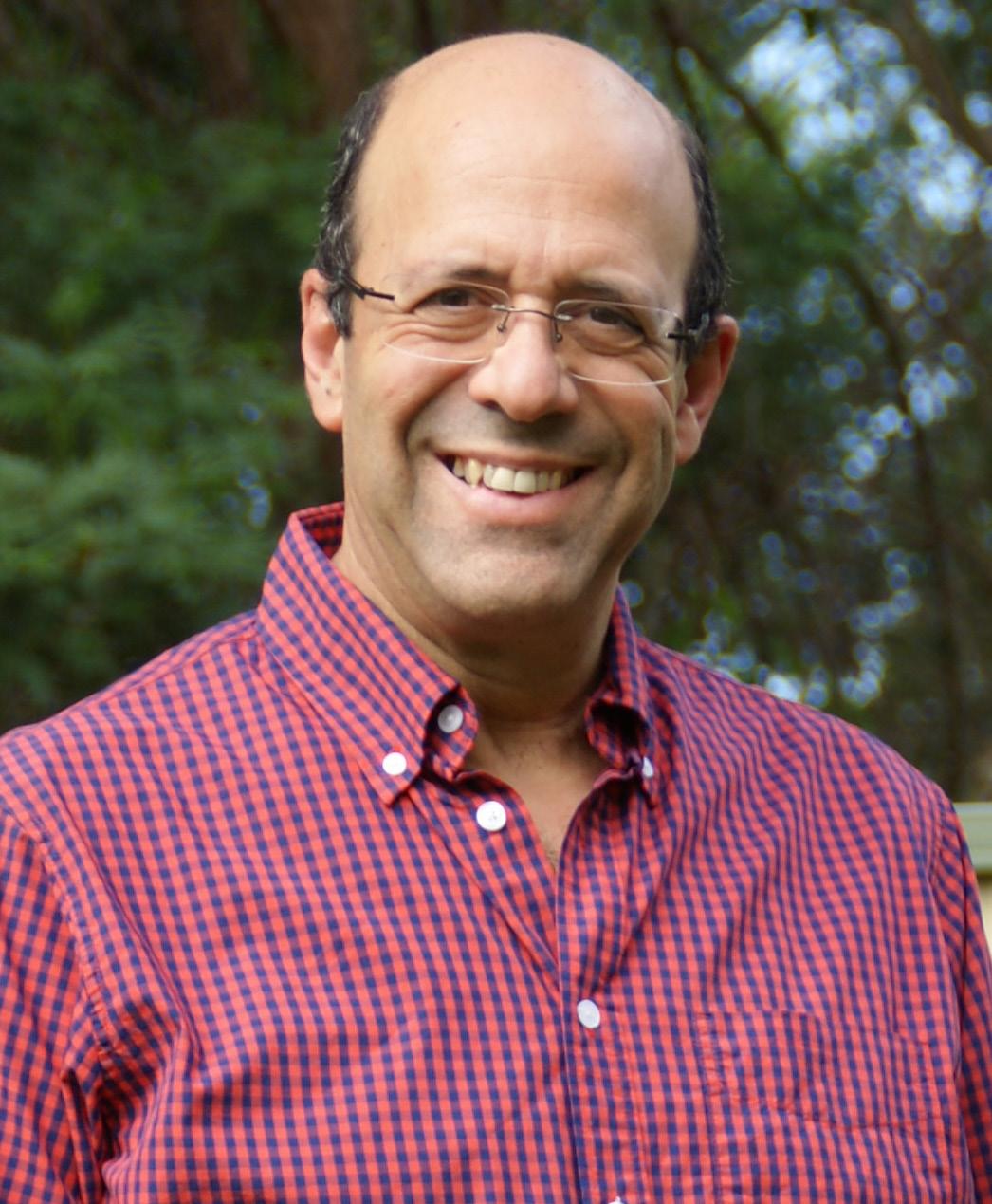
David Solomon
KOSHER LIVING

F E A T U R E
Rabbi Mordechai Gutnick at Woolworths Malven kosher launch
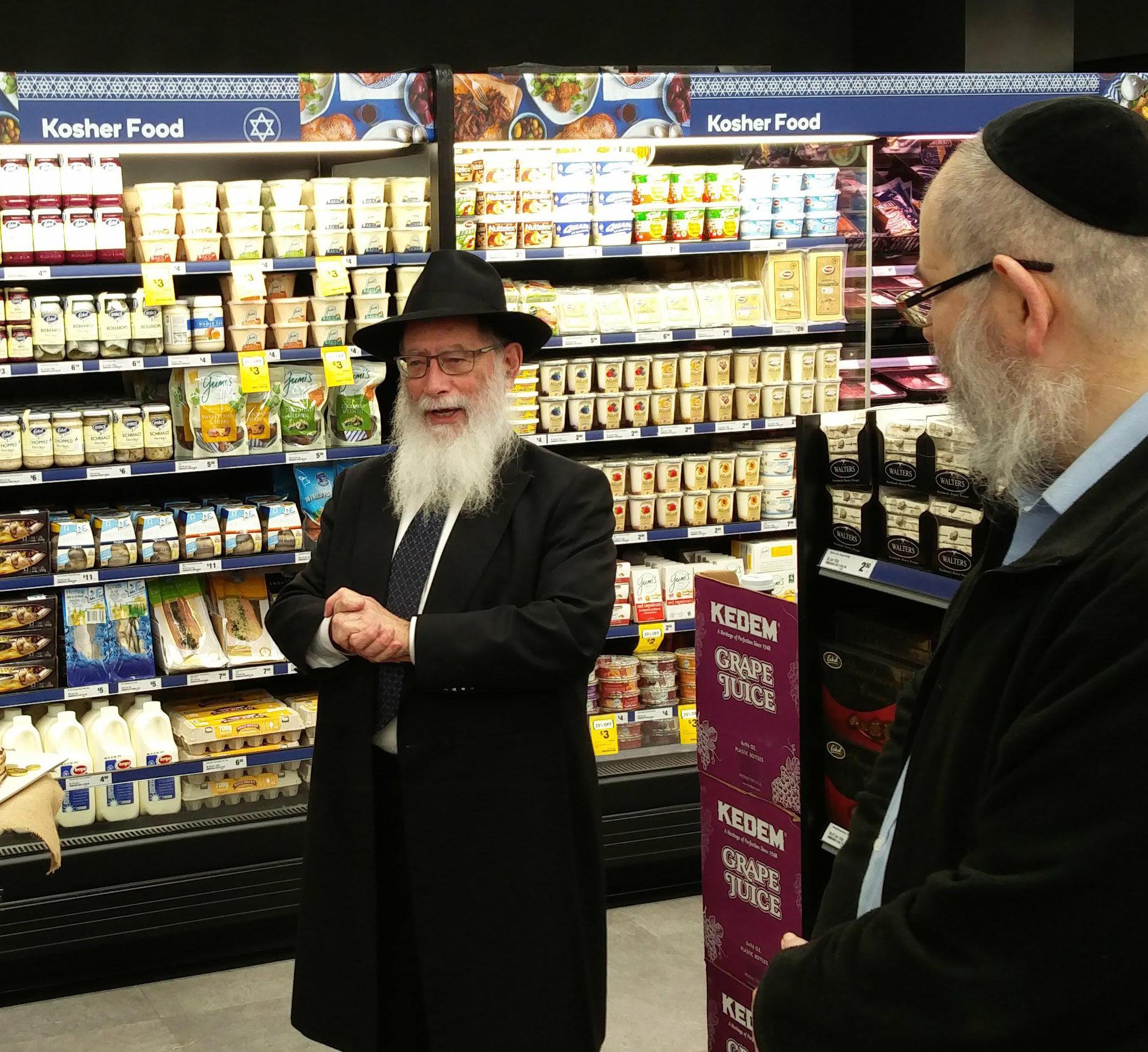
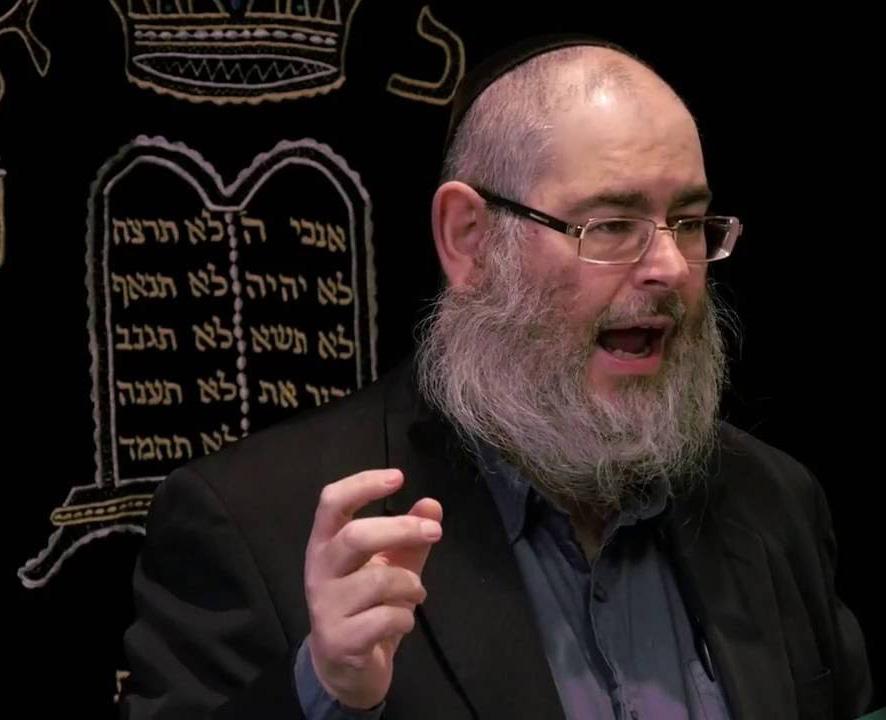
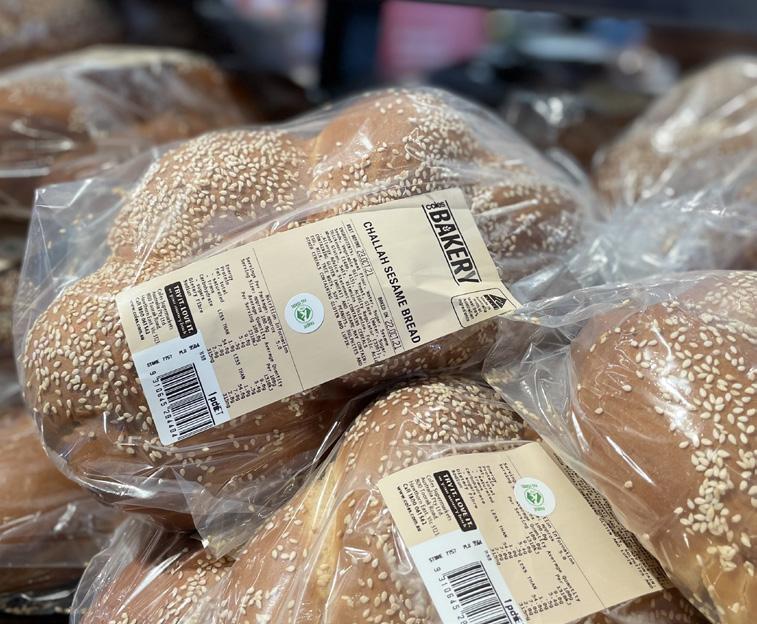
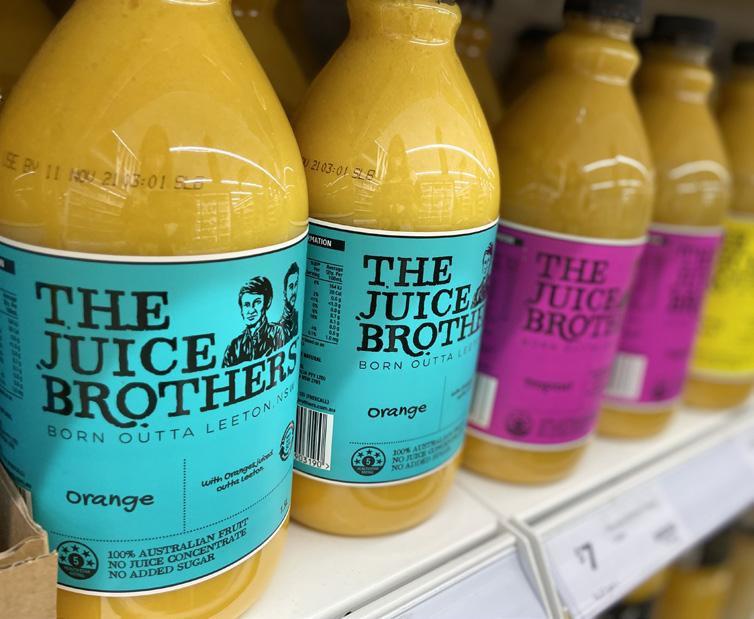
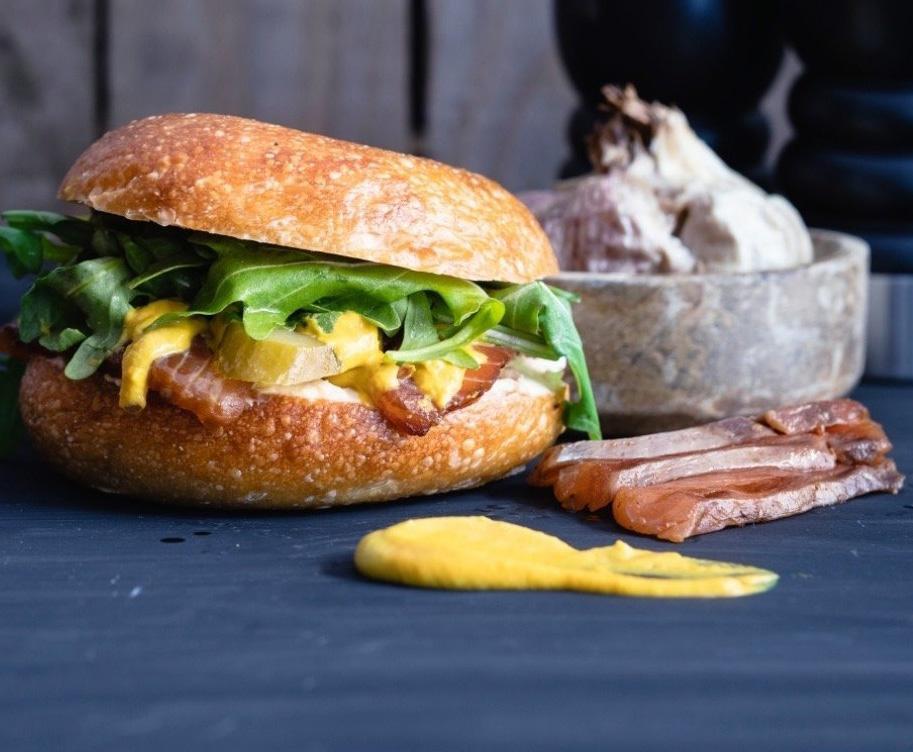
Lessons from kashrut
YERACHMIEL ISACOWITZ
Eating kosher makes me feel good because I am upholding Torah law. The underlying principle of kashrut is that food influences our character.
The halachic science of kashrut requires kosher animals to have no major health issues or broken limbs before slaughter. Further, they are killed with surgical precision, so one could argue that this is a more humane and less traumatic method of death for the animal.
Nonetheless, kashrut is a chok (a manifestation of the Divine will.) By analysing this set of mitzvot, we can discovery spirituality by keeping kosher.
Let’s look first at animals. The requirement of split hooves could allude to not getting too attached to the Earth, since each individual’s stay is only temporary. From chewing the cud, we can deduce that every bit of knowledge one obtains must be thoroughly processed before being digested (accepted). Meat is salted to ensure removal of all blood. Blood is the life source of animals and we want to minimise our animalistic drives.
Fish require scales. From this, we can understand the importance of wearing an emotional "suit of armour” to overcome those who torment, abuse or insult us. Kosher fish have fins, which may suggest that we should not hesitate to flee negative influences.
Moving on to birds, there is a given principle that when the Torah enumerates anything, it is the minority that it turns to. From the fact that it lists all non-kosher birds, we can deduce that the majority of them are kosher. Nonetheless, we only eat those that we know have been consumed by previous generations. We can say the lesson here is to place our trust in those who came before us and not rely solely on our own judgment.
The whole of the plant kingdom is kosher and plants are the building blocks upon which all life survives. Plants are often not even given the same status as animals and yet the Torah recognises their unique properties. From this, we can say that humility is an essential element of true greatness.
The prohibition of cooking and eating milk with meat is introduced in the Torah with the words: “Do not cook a kid in its mother’s milk.” A lesson we could take from this is not to use something given or said to us for our own benefit against the person that gave it to us.
There is a vast science of halachah (Torah law) regarding taste transfer. Torah prohibits kosher food that has absorbed the taste of non-kosher through, for example, cooking. This could translate to a philosophy of human interaction. Depending upon how I interact with others, there will be an effect on me. I have to determine with whom I will interact and to what extent.
We are not forbidden to eat creatures smaller than the eye can see, for example bacteria in non-pasturised wine, milk etc. We are also permitted to swim in the sea with a chance of swallowing plankton. This teaches us to develop the outlook that not everything requires vigilance. In other words, let things go, don’t sweat the small stuff.
Yerachmiel Isacowitz is an Australianbased Jewish education specialist. Email: risacowitz@optusnet.com.au World Wide Web: torahconcepts.com Facebook: The Mem Channel
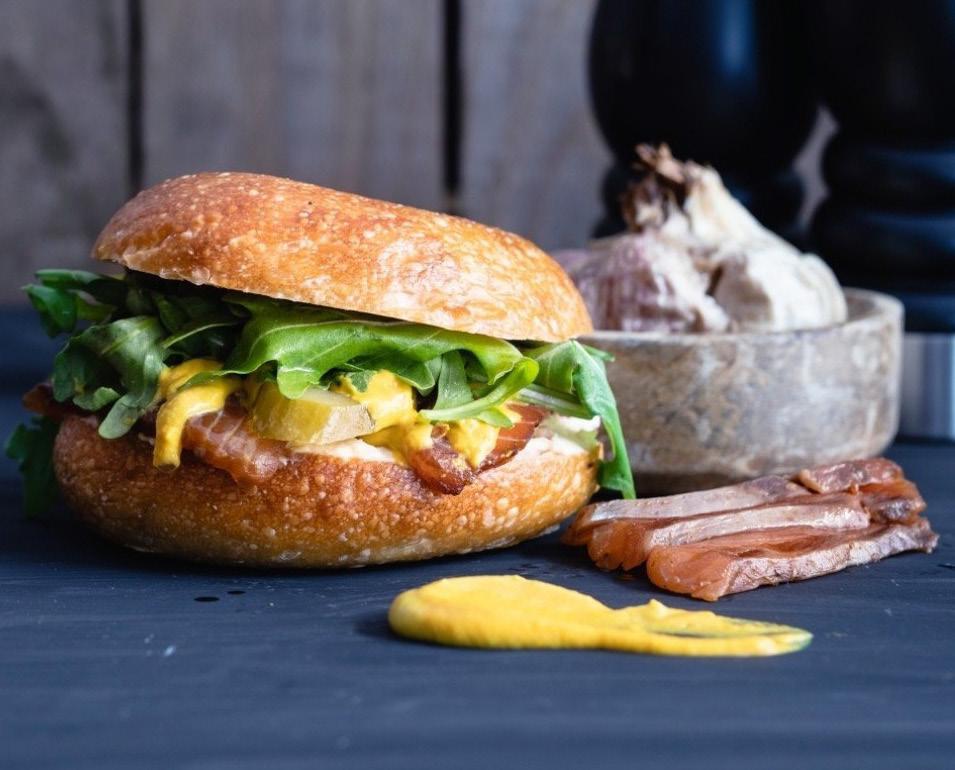
Kashrut – the key to Jewish survival Kosher Consumers
KOSHER AUSTRALIA
The laws of kashrut demonstrate the great wisdom of our Sages and their foresight in protecting the future of the Jewish People.
The Talmud in Avodah Zarah (35b) relates a number of decrees and broadbased laws that were enacted that related to kashrut. These decrees were: 1. Stam Yenam – Kosher wine may only be produced by a Jew. 2. Chalav Yisrael – Kosher milk must be supervised by a Jew. 3. Gevinat Yisrael – Kosher cheese must be made by a Jew. 4. Bishul Akum – Kosher food must be cooked by a Jew. 5. Pat Akum – Kosher bread must be baked by a Jew.
Though these decrees were enacted in a similar period (around the time of the destruction of the Bet HaMikdash and in the century following), they have different reasons for being.
Chalav Yisrael (milk) and Gevinat Yisrael (cheese) deal with the very real concern that as it is almost impossible to tell the difference between milk or rennet derived from kosher or non-kosher sources, the only guarantee of kashrut is that a Jew supervises the entire activity.
Stam Yenan (wine), Bishul Akum (cooked food) and Pat Akum (bread) also have essentially the same reasoning – to prevent assimilation.
The rabbis realised that relationships are nurtured when they are literally fed and watered. “Breaking bread”, having a meal or a glass of wine with your non-Jewish neighbour fosters a friendship that will eventually cross the borders of religion and potentially lead to intermarriage of offspring.
These laws essentially erect a barrier that serves as a reminder to the Jew that while you can be cordial with a nonJew, that relationship may only go so far.
Two millennia after being enacted, all of these laws are still in force.
And we must recognise that without these decrees in all likelihood the Jewish people would not have survived the long Galut. Kosher Australia manage two Facebook pages, one of which is devoted to answering Kashrus questions. While many of the questions are clarifications if a product is kosher or not, some of the questions require more than a simple “yes” or “no” while others are not within our ability to answer.
For example, we are frequently asked by consumers if we can investigate a certain product or product range. Admittedly, it would be great to wave a magic Kashrus wand and approve the product or product range, but this is not feasible because they either contain ingredients that are questionable or involve production methods that raise kosher concerns.
Unless we already work with the manufacturer, we recommend that consumers reach out to the company involved, as they usually get a better hearing, whereas Kosher Australia rightly or wrongly are sometimes treated as “merely advocates” for kosher products.
In fact, over the years, we have tracked the success of our “cold calls” to companies and the results have been disappointing. In most industries, making 100 “cold” or unsolicited contacts to potential customers results in a 10% success rate. We experience, perhaps, a 1% conversion rate. We have theorised that this low success rate can be due to: • the perceived smallness of the kosher market (retail worth around $600 million annually in Australia); • the lack of general knowledge about kosher production; • the reticence of local manufacturers to look at new opportunities; or • the lack of will by manufacturers to undertake additional quality audits.
Almost all the new companies that we certify each year have approached us for kosher certification. That is why the growth of kosher lies with consumers.
Postscript: Since 2003, Kosher Australia has grown from certifying 30 companies and a few hundred products to working with 750 companies and certifying more than 30,000 products.
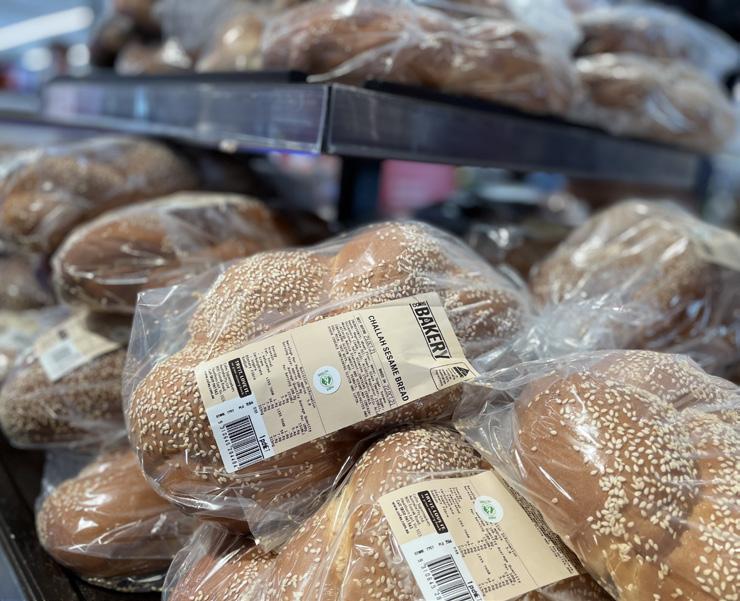
YANKEL WAJSBORT KOSHER AUSTRALIA
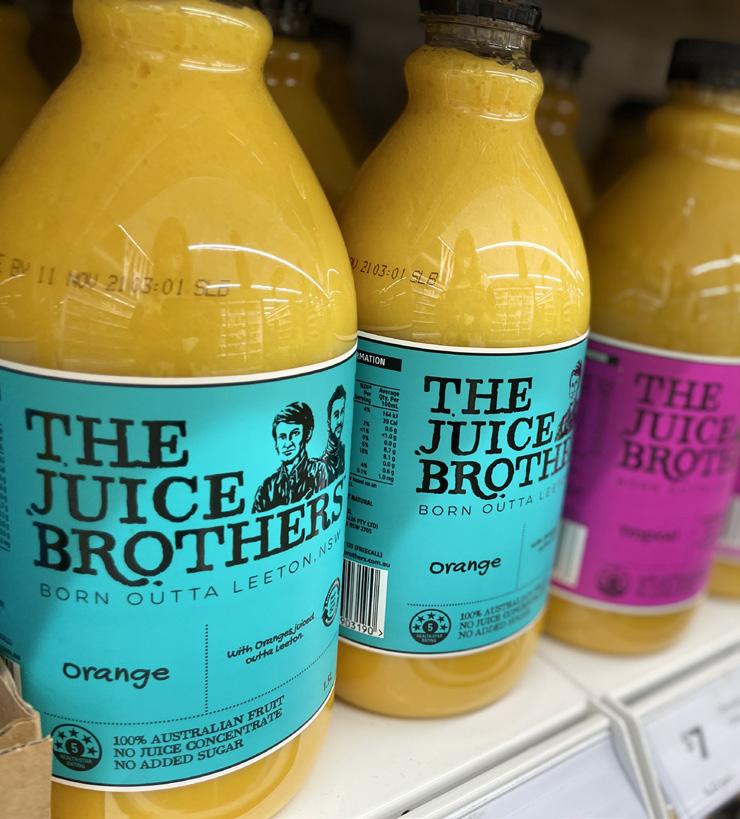
Non-kosher in the kitchen cupboard
BY YANKEL WAJSBORT KOSHER AUSTRALIA
While I can be quite annoying at the best of times (just ask my kids), once I started working for Kosher Australia I stepped up a notch. My friends now refer to me as the “Kosher cop” as whenever I’m visiting I cannot help but look in their kitchen pantries and point out things that really shouldn’t be there. (Most of my friends take it with good humour – at least, the remaining ones do.)
How does it happen that people who are Orthodox and strictly observe Kashrus end up with products that aren’t Kosher in their cupboard?
There are a few reasons for this.
Confusion #1. The Kosher guide is, on occasions, ambiguous. We do try to make things clear, but sometimes it’s just not possible (for example SPC Ardmona products, which require checking of date codes and container sizes) or we mess up (I admit, I’m only human).
Confusion #2. Differences between what is in the Kosher Australia Kosher Guide and statements made by other Kosher authorities. Given the due diligence we put into what we list from both the food technology and halachic perspectives, we would like to think that we are correct. Each product goes through three levels of checking to ensure its approval or otherwise. If we’re not sure about a product, it does not go into the book.
Confusion #3. Deleted products. Unfortunately, products come off the list for various reasons – manufacturers change the way they do things or make an error or find that sourcing Kosher ingredients sometimes is not economical. Just because the product was Kosher in 2011 doesn’t mean that it is still kosher in 2021. We had a very embarrassed call from a Jewish school that discovered that the vegetable oil they were using at their unsupervised camps was not Kosher. The head mistress noted that it had been kosher in 2002!
Confusion #4. The shopkeeper said it was okay. We always advise consumers not to rely on the assurances of the shopkeeper who may not be an objective party in your Kosher purchasing.
Confusion #5. The manufacturer said it was kosher. Often manufacturers make this claim. When they do, ask for a copy of their current Kosher certificate so that you can check it. Quite often, their objective Kosher “certificate” is the company themselves claiming that they are “kosher”.
Confusion #6. The rumour mill. People say that they heard that Kosher Australia had approved the product. For example, at a recent adult seminar a sign stated that all flavours of a certain brand of tea were now acceptable. (I found out that this had happened when people mentioned this to me a few days later.) Of course, we issued no such statement – someone listened into a conversation between Rabbis and assumed from the tone of the discussion that all was now fine. Rule of thumb – if a product is okay, we’ll advise via email, social media and public announcement. If there is no advice from us, then there is no change.
Confusion #7. Of course, the “mother of all reasons” is that “we saw it at soand-so’s place and they are extremely strict”. The so-called Kashrus of “but everyone eats it”.
For any of the above reasons, consumers erroneously purchase nonKosher products. Jim (aka Dmitri), our head of maintenance at the Kosher Australia office who doesn’t keep Kosher for obvious reasons, receives “free” products that I inadvertently buy from the supermarket.
As always, please check the current Kosher Australia Food Guide and/or the Kosher App first. You may discover something that you didn’t know.
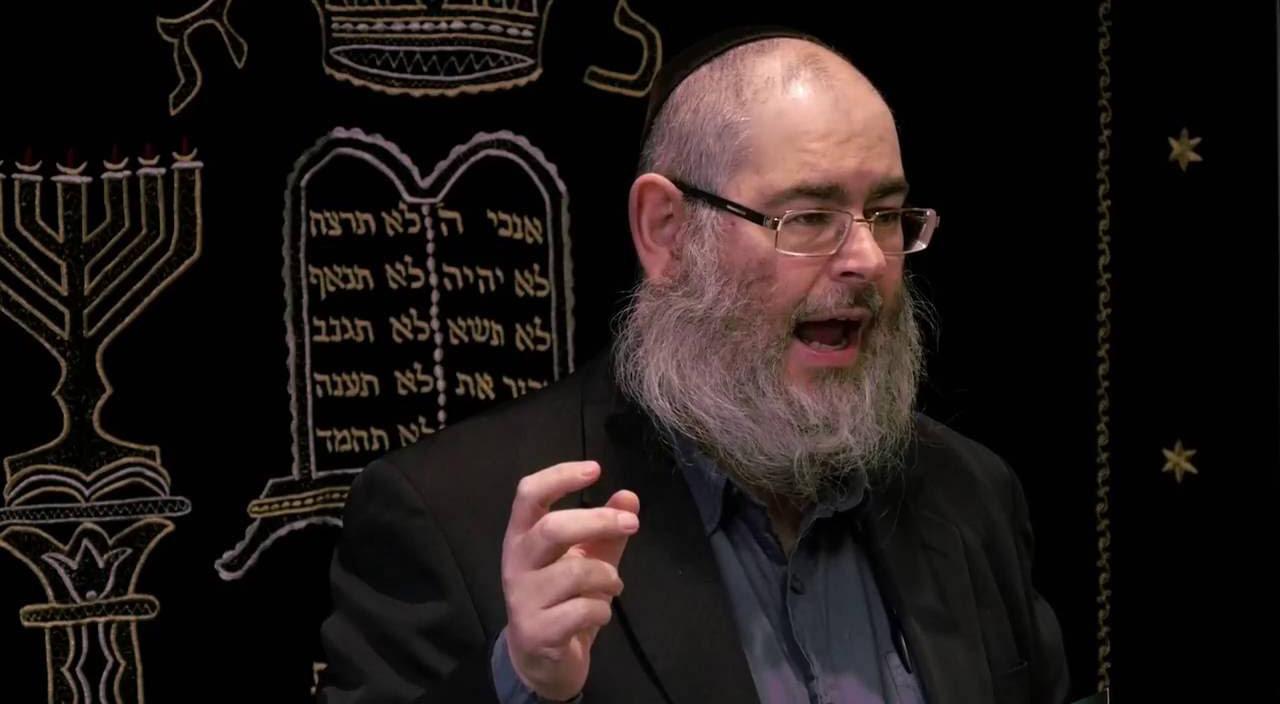
Yankel Wajsbort joined Kosher Australia in October 2003. Previously he was the Group IT Manager for an international manufacturer. He has also worked as a manufacturing and management consultant.

Kosher meat is better
KOSHER AUSTRALIA
A number of years ago, a YouTube film, “Koshermania”, became famous in Jewish circles. It shows ex world champion wrestler Hulk Hogan trying to organise a housewarming barbecue after moving to a new neighbourhood in Miami.
In preparation for the party, Hogan and his wife knocked on doors and discovered that they’d bought into an area heavily populated by Orthodox Jews that kept kosher. Thus began Hogan’s (at the command of his wife) quest for the “kosher” housewarming party.
Eventually Hogan and his son arrived at KosherWorld in Miami Beach and asked the yarmulke wearing attendant about the difference between kosher and nonkosher meat.
The attendant patiently explained that kosher meat is slaughtered humanely and that diseased animals are not kosher.
Hogan’s response: “Kosher meat sounds much healthier – I think I’ll always buy it.”
A similar comment was made at an Austrade function attended by a number of Kosher Australia client companies. In chatting about buying habits, one client, the managing director of a very popular range of breakfast cereals, dropped what I thought was a bombshell.
“I’ve always been interested in kosher food. We’ve even bought kosher meat for home use for the last five years.”
She then confirmed that she shopped at Continental Kosher Butchers since she was married. When I pointed out that kosher meat was more expensive than non-kosher, she responded: “So what – it’s better quality.”
Indeed, kosher meat is healthier for a number of objective reasons: 1. In Australia, only glatt meat is allowed. “Glatt” or smooth refers to the absence of lesions in the lungs of animals and reflects the health of the animal that has been slaughtered. In rejecting nonGlatt, kosher animals are by definition healthier. 2. The kashering process must start within 72 hours of an animal being killed. This reduces the possibility of bacterial contamination. 3. Kashering involves the removal of blood, reducing another potential source of contamination. 4. Porging or treiboring means that many fats and gristle are removed, leaving a leaner cut. 5. The fact that all butchers in Australia are subject to full time supervision from the start of meat processing through to retail packing and sale limits the capacity for external shenanigans. This adds to the quality assurance of the meat. Unfortunately, each of these aspects as well as the manual nature of shechita (an automated, non-kosher production line can move hundreds of animals per hour as opposed to manual shechita that, at best, can be measure in the tens of animals) are factors in increasing the cost of kosher meat.
The fact that kosher meat comes at only a 10% to 15% premium on like-forlike non-kosher meat demonstrates the efforts of kosher butchers and kosher authorities to keep prices manageable.



